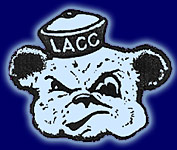Joe Meyer's LACC Poli. Sci. 1
Potential Final Exam Essay Questions

Although each question contains many sub-questions, each essay question is about a single topic and your essay answer should be just that: an essay. It should have a thesis, supporting paragraphs and a conclusion. When asked give details or examples, you should provide them.
1. What is the "pluralist" model or theory of U.S. government? What is the "elitist" theory? Which best explains the realities of U.S. government? Make a strong argument. What are the roles and functions of interest groups in the U.S.?
2. Give a detailed explanation of the process of legislation. Discuss "the iron triangle." What is the role of the staff(ers)? What is the "preconsensus process"? What is the "your man" question? Give an example of an "iron triangle" in action. How important is all this to "our democracy"?
3. How "democratic" is the U.S. democracy? What is "limited government" and how are the various levels of government in the U.S. limited? How is power "decentralized" in the U.S. political system? What is "credit claim"? How does "image" factor into politics? What do these concepts tell us about the state and health of our democracy?
4. What is the role and influence of the news media in American politics? What is "setting the agenda"? What are the differences between print and broadcast news? Give an example of the effect of the news media on American politics.
5. The two major political parties in the U.S. have lost a considerable amount of their power, influence and importance in the U.S. political system. Discuss this trend. List the many reasons for it. Discuss the many other institutions that have taken over many of the functions of political parties. Is the end result a system which is "more democratic" or "less democratic"?
6. Who is the most powerful person in the U.S.? Discuss the difference of the power, role, and influence of the President compared to the Speaker of the House, the Senate Majority Leader and other positions of power in the U.S. today. What are the more important constraints or limits on the President's power? Should the President "represent" the American people or "lead" them?
7. According to the bureaucratic theory who runs the U.S. government? Do you agree? Why or why not? What is incrementalism? What is a "non-decision?" What is "bureaucratic inertia?" What are the four rules of all institutions and how are they relevant in understanding how the U.S. government works?
8. What is the role of the courts in U.S. politics? Why is an independent judiciary so important to our democracy? What are civil liberties and how do the courts protect them? What are civil rights and how have the courts expanded them in recent years? How have the rights of the accused changed? Does all this mean we are "more free" than in the past or "less free?"